A certain mania for “little green men [and] flying saucers,” to quote representative Tim Burchett of Tennessee, has been a part of the American zeitgeist since at least World War II, when pilots reported seeing odd lights sometimes dubbed “foo fighters.”
However, the fascination with aliens and unidentified flying objects (UFOs or, as they are more officially known today, unidentified aerial phenomena, or UAPs) has reached new heights in recent months, thanks in part to the declassification of Pentagon files pertaining to sightings of UAPs, and to a congressional hearing on the subject that was formed around former intelligence agent turned whistleblower David Grusch, who claims that the United States government is covering up a “multi-decade UAP crash retrieval and reverse-engineering program.”
While these subjects have been brought into the national spotlight in a new way, however, there’s nothing new about the claims themselves. In 1947, civilian pilot Kenneth Arnold’s reports of “bat-like aircraft flying in formation at high speeds” near Washington’s Mount Rainier helped to introduce the idea of the UFO into popular culture, and by 1956 movie screens were home to such films as UFO and Earth vs. the Flying Saucers.
Over the years, there have been countless theories – conspiracy or otherwise – about the idea of contact with extraterrestrial intelligence. It has made up the infrastructure of some of the biggest blockbuster movies of all time and informed everything from scientific study to fireworks and candy.
With so much information and misinformation out there, however, where does one turn if one wants to learn more about alien life and whether or not we are alone in the universe? We’ve rounded up 6 books that will either help answer your questions, or at least tell you what other questions you should be asking…
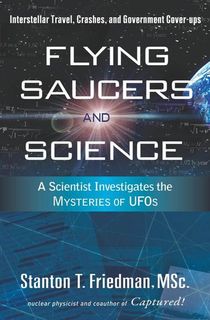
Flying Saucers and Science
Ever since the term was coined, UFOs and “flying saucers” have been firmly situated in the realm of science fiction. In this expansive book, nuclear physicist and UFO researcher Stanton T. Friedman argues that this need not be the case. As he lays out arguments for how it would be possible to travel to and from nearby star systems without violating the laws of physics, he touches upon the scientific aspects of claims that Earth has been visited by extraterrestrial intelligence.
Is the United States government engaging in a disinformation campaign that amounts to a “Cosmic Watergate,” as Friedman claims? That’ll be for you to decide, after you’ve finished reading this book that explains both how and why aliens might travel to and from Earth.

How UFOs Conquered the World
Every bit as interesting as the idea of UFOs is the way in which they have permeated our culture and society. That’s the subject that author David Clarke tackles in this “fascinating” book that “cover[s] all the major themes of ufology, ranging from lights in the sky to crashed saucers, government cover-ups and alien abductions,” according to Popular Science Books.
From the earliest reported UFO sightings to the overlap between UFO theories and world religion, Clarke produces “an insightful, informative and thought-provoking book on UFOs and the UFO culture” (Skeptic).
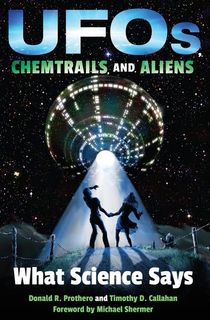
UFOs, Chemtrails, and Aliens
One thing the last few years have demonstrated beyond a shadow of a doubt is that conspiracy theories and conspiratorial thinking are still alive and well in the American imagination – whether it’s about aliens and government cover-ups or alleged voter fraud and the origins of COVID-19.
In this far-ranging book from Indiana University Press, authors Donald Prothero and Timothy Callahan look at the roots of conspiratorial thinking, why people are so eager to believe in the existence of UFOs and extraterrestrial contact, and the specifics of many reported UFO sightings, combining scientific data with their own personal experiences. The result? “Entertainment as well as wisdom for everyone who’s ever wondered what’s behind so many conspiracy theories and paranormal phenomena,” according to Publishers Weekly.
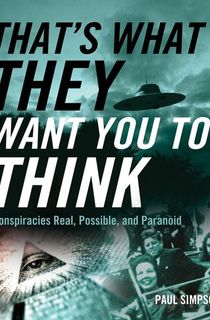
That's What They Want You to Think
Diving even deeper into the well of worldwide conspiracy theories, Paul Simpson’s book aims to start from a point of view of neither skepticism nor belief, but rather to examine some of the world’s leading conspiracy theories on their own merits – or lack thereof.
From the Kennedy assassination to the bombing of Pearl Harbor, from the moon landing to Area 51, these are some of the most famous – and infamous – conspiracies in history. In each case, Simpson presents the theories themselves, looks to primary sources for information, and provides his own conclusions as to whether the theories are true or false in this “lively book” that is “well worthwhile” (Booklist).
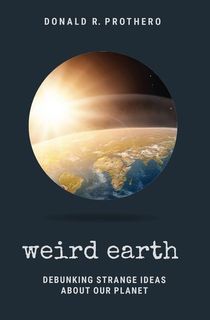
Weird Earth
“Weird Earth is about the facts and the people who don’t believe them,” writes Bill Nye about Donald Prothero’s book, which sets out to not only examine and debunk pseudoscience and conspiracy theories, but to examine how such theories form in the first place, and what tools we can all use to spot them and dispel them before they take hold.
The result is a “breath of intellectual fresh air” (Publisher Weekly) taking aim at everything from aliens and ley lines to the moon landing and Flat Earth theory, to name just a few of the subjects covered in this far-reaching and fascinating book.
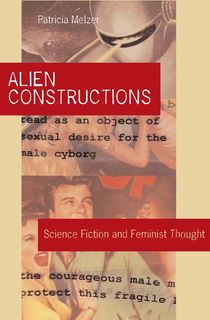
Alien Constructions
Though UFOs and aliens have been a part of the cultural conversation in innumerable ways, and despite the ubiquity of eyewitness accounts, there is no denying that movies and science fiction novels have played a major role in how and why we think of extraterrestrial intelligence – and human intelligence. In this “incisive critical work” (Femspec), Patricia Melzer looks at science fiction movies and books through a feminist lens, with a specific focus on the writings of Octavia Butler, Richard Calder, and Melissa Scott, as well as the movies in the Matrix and Alien series.
By examining these works from the perspective of identity and difference, feminist critiques of science and technology, and gender identity, body, and desire, Melzer argues that feminist readings of science fiction can illuminate important information about existing power relations, and that these stories are equally capable of being either empowering or threatening.
